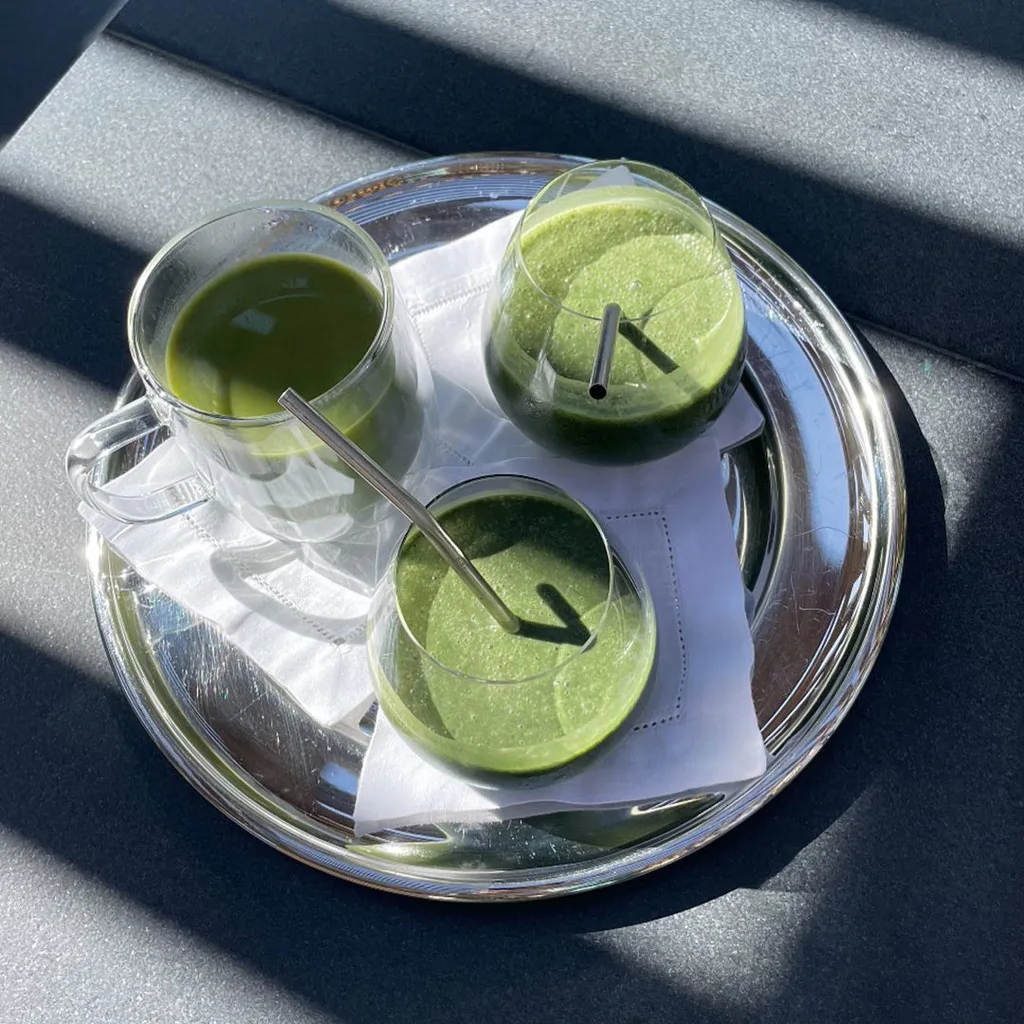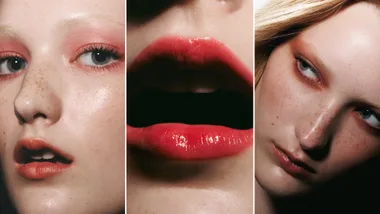In every friendship group, there’s always one friend who swears by cutting out dairy. For some, it’s because of its bloating capabilities or its impact on the cow itself, but for others, they consider dairy a skin soul-destroyer.
Whether it’s eczema, acne, or stubborn dullness that’s inevitable with unhealthy skin, apparently dairy actually has a lot to answer for when it comes to our bodies.
Now, the rise of veganism has seen hoards of people opting for dairy-free options to benefit planet and animal welfare, with oat milks—hello, So Good—and plant-based cheese becoming a hot commodity in recent years.
But did we have an actual reason to demonise dairy when it comes to our complexions? While rumours say that it can contribute to skin gripes and excess oil, not many know what is actually said about its effect on our skin.
Before you toss your cheese out the window, fret not. We’ve done the hard work for you, sifting through studies, reports and professional opinions to figure it out, once and for all.
Below, everything you need to know about dairy and it’s effect on your skin.
Main image via @ashleygraham

What Is The Connection Between Dairy And Skin Health?
Whether there is sufficient evidence of dairy directly affecting our skin health continues to be debated. And while there are copious amounts of extensive research out there, it can be tricky to summarise.
In short, certain studies claim that younger people who consume heavy amounts of milk, no matter the fat content, have a higher chance of dairy-related acne breakouts than those who skip dairy.
No matter your feelings on dairy and any effect it might have on your complexion, there’s no denying that your body needs that dose of calcium to remain healthy. So don’t worry, we’re not telling you to calm down on the cheeseboards just yet.
As for why there is a connection between milk and acne? Well, nothing has ever been completely confirmed. Instead, many hypotheses and research have shown that there are possible ways that the two could be linked. Fret not, we’ve covered that below.

Can Dairy Products *Really* Cause Acne Or Other Skin Problems?
Since the dawn of time, whispers have claimed that our dairy consumption can negatively affect our complexion. But why was a connection drawn between two seemingly polar opposites? Well, for many reasons.
The first—and most popular—connection that some have drawn is about hormones. Of course, those who experience a monthly menstrual cycle will be too familiar with imperfections and blocked pores caused simply by a change in hormone level. That’s not news to us.
However, cow’s milk and dairy in general can contain casein and whey protein, which can raise our hormones and lead to an increase in sebum, the oil produced by our skin that leads to acne, a 2018 report explains.
“In terms of the science, there’s really nothing there,” Dr Andrew Miller, dermatologist from the Australasian College of Dermatologists previously told marie claire.
“In terms of acne specifically, the theory is that the naturally occurring hormones in milk could cause problems in the skin, but the only time they’ve ever demonstrated anything that comes close to an affect is skim milk in women.”
But that’s not the only way dairy could take aim at our skin. In fact, certain foods when combined with dairy can affect our insulin levels, and in turn, impact our skin. When milk, in particular, is processed with particular foods, it disrupts insulin levels. The higher the insulin, the higher the chance of inflammation in the body which commonly leads to acne, eczema, rosacea and all-round angry skin.
“Acne can be regarded as an indicator disease of exaggerated insulinotropic western nutrition,” a study explains.
“Especially milk and whey protein-based products contribute to elevations of postprandial insulin and basal insulin-like growth factor-I (IGF-I) plasma levels.”
However, while there are certain biological links between dairy and acne, it doesn’t actually mean that consuming dairy is a surefire way to end up with problematic skin.

Are Dairy-Free Alternatives Better For Your Skin?
Hearing that studies have shown dairy to be a potential trigger for acne through hormones and insulin, would leave many contemplating switching to dairy-free alternatives in their diets.
In a 2019 study, evidence showed a variation between different types of dairy and the skin’s reaction to it. From testing whole, semi-skimmed, low-fat and skimmed milk, the latter looked to have the highest negative impact on the skin.
However, Dr Miller advises that the evidence that the claim is based off shouldn’t worry those concerned.
“The way skim milk is concentrated can theoretically increase the risk of getting a hormone boost from drinking it, but if you look at the evidence critically, it’s very soft.”
Despite this, there looks to be a heavy increase in people choosing to cut dairy completely out of their life. And for many, the popular swap seems to be with oat milk for its sweeter and creamier taste.
While the product is amazing for smoothies, ice cream and coffees, oat milk does contain a high GI index food because of its sugar maltose, according Brightly. This can result in raised blood sugar levels, however, that doesn’t mean it’s time to rule it out.
In fact, a splash of oat milk in your coffee is hardly likely to destroy your skin’s sebum. After all, acne isn’t typically caused by a singular event, can be multifactorial and isn’t often caused by dietary choices.
“For now, whether you’re a teenager or an adult, it’s likely that there is no single diet that will guarantee clear skin,” confirms Robert H. Shmerling, MD, Senior Faculty Editor at Harvard.
Can dairy wreck some havoc on your skin? Technically, maybe. Are dairy-free alternatives the answer to problem-free skin? Well, not exactly. Ultimately, whether you stick to dairy or non-dairy, consuming in moderation should have little impact on your skin.
So please, don’t let your cheeseboard gather dust.










